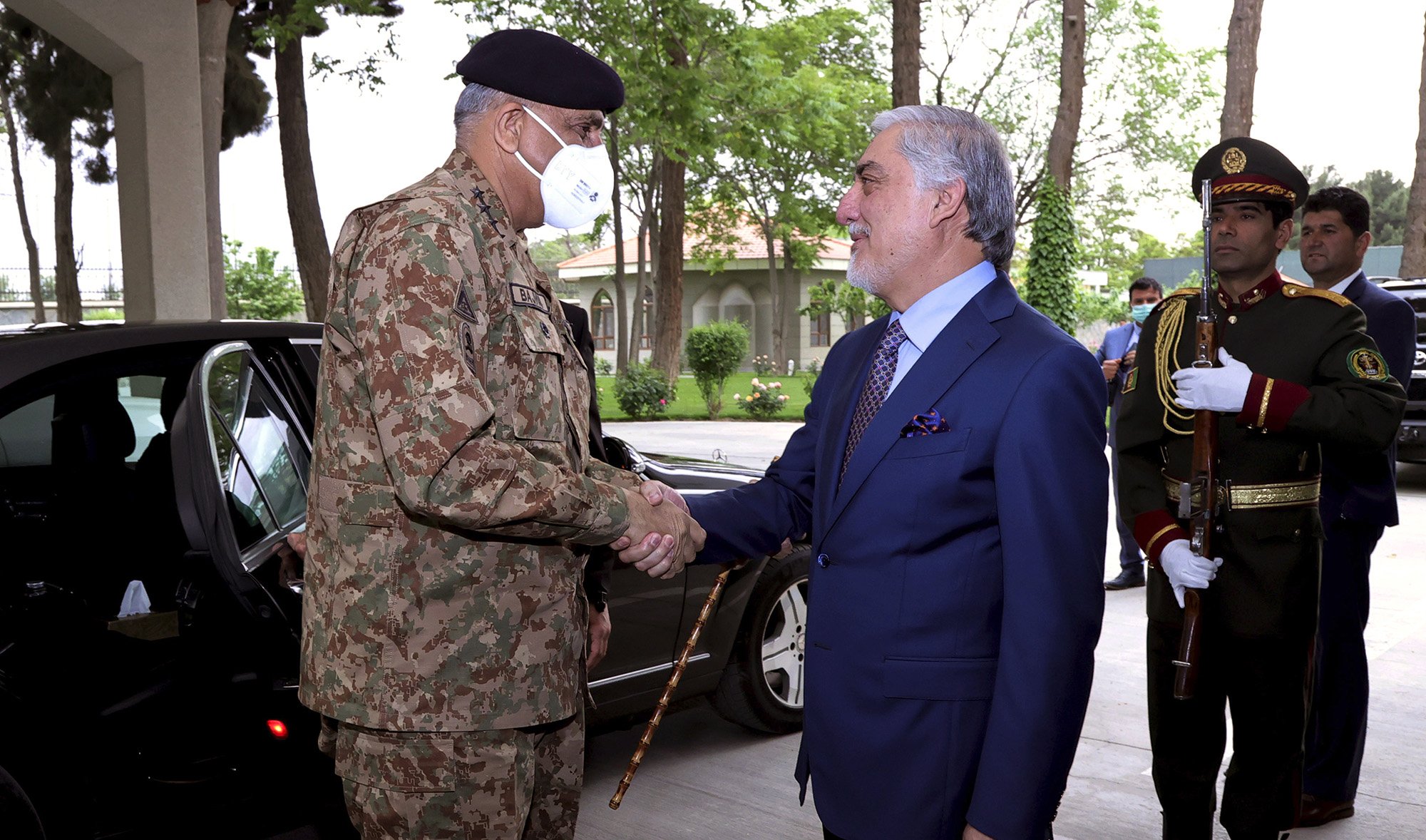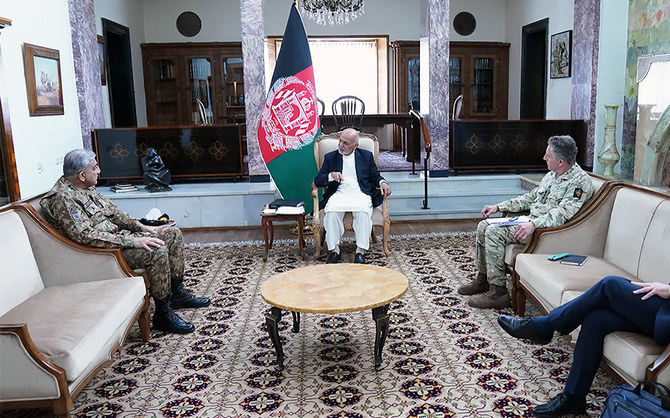ISLAMABAD: Pakistan’s army chief General Qamar Javed Bajwa visited Kabul on Monday where he held meetings with President Ashraf Ghani and Chairman of the Afghan High Council for National Reconciliation Dr. Abdullah Abdullah to discuss intra-Afghan peace talks, said the military’s media wing, ISPR, in a statement.

Pakistan's army chief Gen. Qamar Javed Bajwa, left, shakes hands with Abdullah Abdullah, Chairman of the High Council for National Reconciliation, on his arrival in Kabul, Afghanistan, on May 10, 2021. (Sapidar Palace via AP)
Gen Bajwa reiterated that a peaceful Afghanistan means a peaceful region in general and a peaceful Pakistan in particular. “We will always support ‘Afghan led-Afghan Owned’ Peace Process based on mutual consensus of all stakeholders,” he was quoted as saying by the ISPR.
Military statement added that Afghan President Ghani thanked Gen Bajwa for a meaningful discussion and “appreciated Pakistan’s sincere & positive role in Afghan Peace Process.”
Bajwa undertook his visit to Afghanistan at a time when it is witnessing increased militant violence against its security forces and civilian population, making regional actors urge the Taliban insurgents to abandon violence and create a more conducive environment for peace talks with the administration in Kabul.
The United States has already started pulling out its troops from the war-battered country and is likely to complete the process by the 20th anniversary of September 11 this year.
Bajwa also met Britain’s Chief of Defense Staff General Nicholas Patrick Carter in Kabul, who was also present at his meeting with the Afghan president.
“During the meeting, matters of mutual interest, regional security situation, particularly current developments in Afghan peace process and measures to further enhance bilateral and defense cooperation, were discussed,” the ISPR said.
The statement added that General Carter “appreciated Pakistan’s sincere efforts for peace and stability in the region, especially the Afghan peace process.”
Pakistan also welcomed the Taliban announcement on Monday to declare a three-day cease-fire in Afghanistan during this week’s Eid Al-Fitr holiday.
Eid Al-Fitr marks the end of the Muslim fasting month of Ramadan, and the holiday begins after the crescent is sighted for the next month on Islamic lunar calendar.
“We welcome the three-day cease-fire announcement for Eid-ul-Fitr by Taliban,” Pakistan’s foreign office said in a tweet.
It added: “We fully support all efforts that lead to reduction in violence and contribute to achieving durable stability & lasting peace in Afghanistan.”
The cease-fire announcement from the Taliban came only two days after a bomb attack on a girls’ schools in Afghanistan on Saturday that killed about 60 people, mostly young schoolgirls.
The Taliban condemned the deadly bomb blast outside the school and denied any responsibility.
















